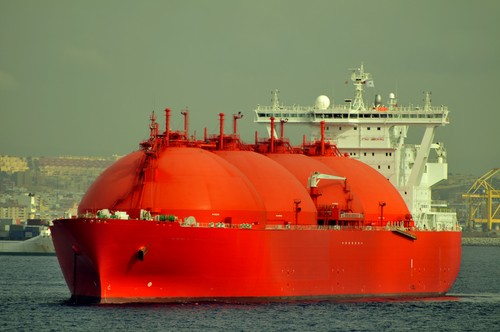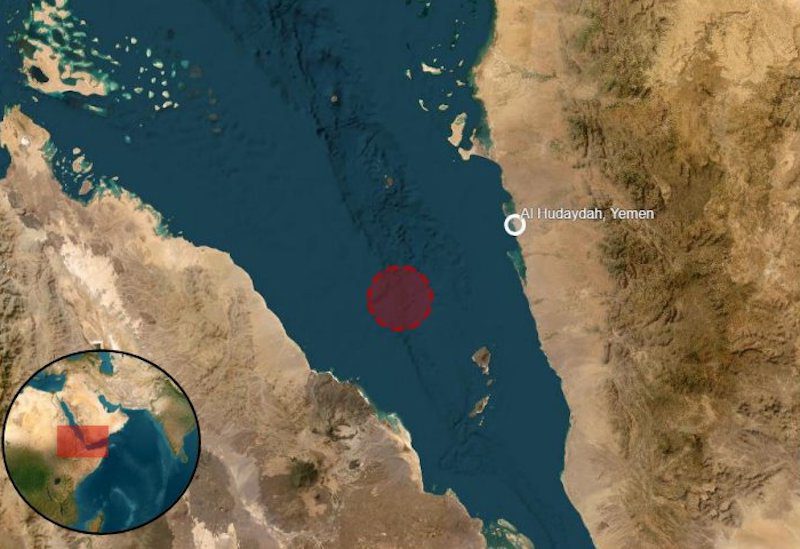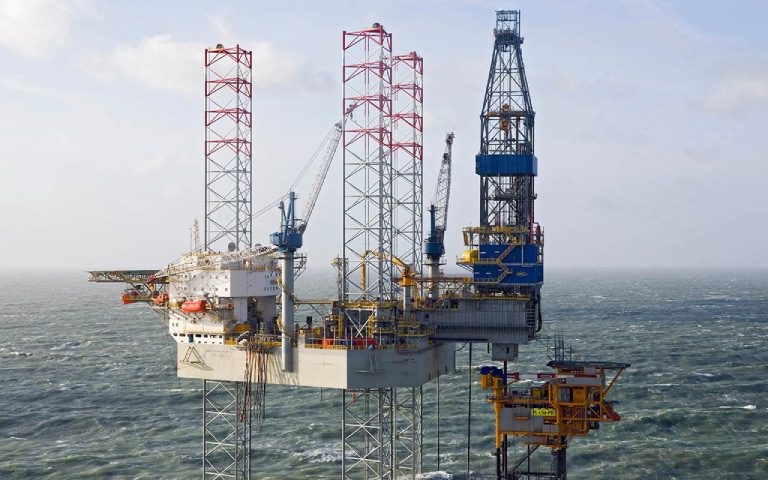(Bloomberg) — Natural gas exports would have “net economic benefits” for the U.S., according to a study commissioned by the Energy Department, which is weighing applications from companies looking to overseas markets to alleviate a domestic gas glut.
While the study projects a modest price increase to U.S. fuel costs under high-export scenarios, it amounts to an almost unqualified endorsement of more exports of shale gas.
The report “is a very positive sign” that the department will approve more export applications, according to Whitney Stanco, a senior policy analyst for Guggenheim Securities LLC, in a note to investors.
The study will be examined closely in Congress. Some lawmakers have expressed concern that exports may imperil the competitive advantage cheap gas offers to U.S.-based manufacturers, as well as increase costs for consumers. Supporters of greater exports say it would create jobs and help narrow the nation’s trade imbalance.
Senator Ron Wyden, an Oregon Democrat and the incoming chairman of the Energy and Natural Resources Committee, will “continue to call on the Energy Department to ensure that unfettered natural gas exports don’t harm U.S. consumers and manufacturers,” according to a statement from his office.
Stocks Surge

Various companies building or seeking approval from the Energy Department for export facilities surged on news of the report’s findings. Liquefied natural gas, or LNG, is made by cooling gas to a liquid for shipment on tankers.
Sempra Energy, which has signed three commercial agreements to develop a liquefied natural gas facility in Louisiana, rose 3 percent to $70.30 at the close in New York, the biggest gain in more than a year and the top performer in the Standard & Poor’s Utility Index. Dominion Resources Inc., which is seeking approval for an export facility in Maryland, rose 2.6 percent to $51.73.
Dominion is negotiating terminal service agreements with four to five customers for its Cove Point terminal in Maryland, the only proposed facility in the shale-rich northeastern U.S., Dan Donovan, a Dominion spokesman, said in a phone interview.
Cove Point
Cove Point would cost $2.5 billion to $3.5 billion to convert into an export facility with a capacity of about 750 million cubic feet a day, Donovan said.
“Dominion Cove Point is a logical, cost-effective and environmentally efficient site,” Donovan said. “We already have storage, a dock and a pipeline coming in to the plant. So, we have a lot of advantages.”
Natural gas also rose after the report. Futures for January delivery gained 4.5 percent to $3.70 per million British thermal units on the New York Mercantile Exchange. The increase is the biggest since Nov. 13.
Across all scenarios examined, “the U.S. was projected to gain net economic benefits from allowing” exports of liquefied natural gas, the study, which was written by NERA Economic Consulting, said.
The market would determine the appropriate level of exports, according to the study.
“If the promise of shale gas is not fulfilled and costs of producing gas in the U.S. rise substantially, or if there are ample supplies of LNG from other regions to satisfy world demand, the U.S. would not export LNG,” the report states.
Approval Process
The department asked for the economic analysis as it weighs about 15 applications from companies to build natural gas export terminals. It said it would begin deciding on a “case-by-case” basis whether to approve the export licenses after getting reaction to the NERA study. The comment period will last about 75 days.
The issue of natural gas exports underscores the changing dynamics of U.S. energy policy brought about mainly from hydraulic fracturing, or fracking.
The process is producing natural gas from the Marcellus Shale in the Northeast and crude oil in the Bakken formation in North Dakota and Eagle Ford in Texas, reducing imports and creating thousands of jobs.
In fracking, oil and gas companies shoot a mixture of water, sand and chemicals underground to crack shale rock formations and free fossil fuels trapped inside.
Energy companies are looking to ship the super-cooled gas to overseas markets like Japan’s, where prices are higher.
FERC Projection
Jon Wellinghoff, the chairman of the Federal Energy Regulatory Commission, which is responsible for licensing the terminals, said in an interview before the study was released that he believed most of the projects won’t go forward because of high construction costs and the fact that other countries are also increasing gas production to alleviate global demand.
In the U.S., production of natural gas in shale formations pushed prices down to their lowest price in a decade earlier this year. While the price has increased since, the cost is below historic averages.
“The U.S. still has enormous untapped resources of natural gas to an extent that it’s pushed inventories in the U.S. to historic highs and that really only represents a portion of what the U.S. is capable of producing,” Will Frohnhoefer, an equity analyst at BTIG LLC in New York, said in a telephone interview before the report was released.
Chemical companies are planning to invest billions of dollars in the U.S. to take advantage of the bounty. Natural gas is an ingredient for chemical products.
The study followed the Energy Department’s decision to grant Cheniere Energy Inc. permission to ship gas from a facility in Louisiana. Department officials had said future permits wouldn’t be issued until the study was completed.
U.S. permits are required to sell gas to countries that aren’t free-trade partners with the U.S., a group that includes Japan and Spain. After the Fukushima nuclear-reactor crisis, Japan has increased imports of natural gas as an energy source.
-By Jim Snyder and Edward KlumpCopyright 2012 Bloomberg.
DOE Report: http://www.eia.gov/forecasts/aeo/er/

 Join The Club
Join The Club












